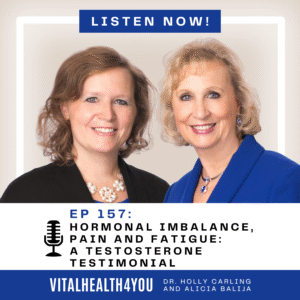The field of medicine has made enormous strides in the understanding of human physiology. What has become even more apparent with each decade is how truly remarkable the body is. The human eye, just a fraction of the weight of the body, processes about 80% of the information fed into our brains. We only have to lose our eyesight to appreciate its incredible functions. The hand, with its amazing dexterity, a heart that beats unceasingly for most of our lives until our final moments of life, a liver with hundreds of functions, the brain, etc. etc.
We are understanding so much now, that no one human can know the volumes of information at our fingertips about every isolated part of the human body, much less intervene when there is a “medical crisis”. As such, medicine has fractionalized into specialties. Cardiologists only work on the heart, neurologists the brain and nervous system, urologists the kidneys, bladder and prostate, endocrinologists work only on the hormone-producing glands, etc. Even now, these specialties have sub-specialties: cardiologists that only work on acquired heart disease, vs. those who only work on congenital heart disease. Some only work on electrical aberrations of the heart while others only work on vascular blockages. Some urologists only work on the nephron of the kidneys, while some endocrinologists only specialize in the pancreas/diabetes.
With all of these specialties and sub-specialties we are losing something: the person. When you come to a specialist (and a majority of all medical doctors are specialists today), they only want to know about that organ (or joint if rheumatologist, or bone if orthopedist, etc.) that they specialize in. If you have other symptoms, they’re not interested. Further, insurance companies have dictated that they also stay to one complaint at a time when you come in. In an effort to help you live with your condition by managing it, they forget about the “you”. Is this a problem?
Yes! You are a whole person, with complex physiology, dependent on other systems to work right. To sectionalize the body may help define a specific organ malfunction, but doesn’t consider the other organs involved.
For instance, if you have osteoporosis – why? Do they ask if you are consuming coffee, sugar, alcohol, soda pop and other food-stuffs that could be contributing? Do they look at how heathy your marrow is, or are they only concerned about bone density. Bone health is not so much about bone density as it is bone quality. Have they asked about digestion? If you can’t consume, digest and assimilate calcium, for instance, having you take more and more isn’t going to help much.
I like to look at the body like a puzzle. There are many pieces that fit together to form the image. If some pieces are missing, the image is not clear. If your puzzle has sat neglected for a while and that’s what is distorting the image, to dust the one piece off – to fix just the one piece, doesn’t make the whole image much better, though it helps. To truly help the body, we must look at the body as a whole.
©2018 Holly A. Carling, O.M.D., L.Ac., Ph.D.







